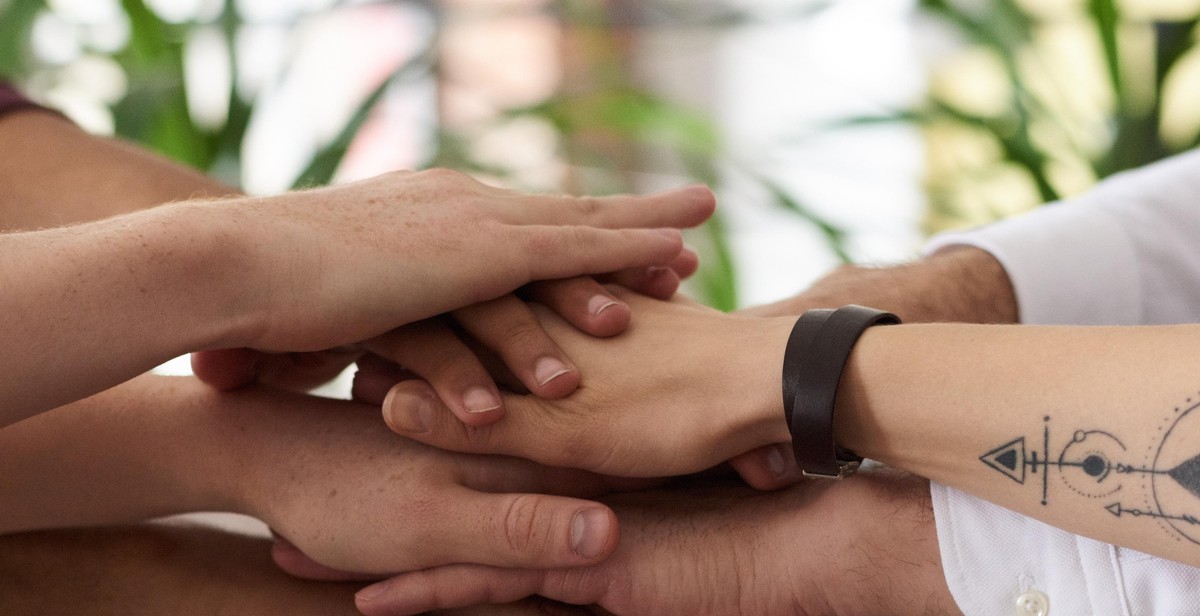Learning to Love Again After Heartbreak: A Love Guru’s Guide
Heartbreak is a painful experience that can leave us feeling lost, confused, and alone. It can be difficult to imagine ever loving again after a devastating breakup or divorce. However, as a love and relationships psychology guru, I firmly believe that it is possible to learn to love again after heartbreak.
Over the years, I have helped countless individuals navigate the complex emotions and challenges that come with healing from heartbreak. Through my own personal experiences and extensive research in the field of love and relationships, I have developed a comprehensive guide to help you learn to love again.
The Importance of Self-Care
One of the first steps in learning to love again after heartbreak is taking care of yourself. This means focusing on your physical, emotional, and mental well-being. It is important to take time to nurture yourself, whether that means getting enough sleep, engaging in physical activity, or spending time with loved ones.
Developing Healthy Habits
Another important aspect of learning to love again is developing healthy habits. This includes setting boundaries, practicing good communication skills, and learning to trust again. By developing these habits, you can improve your relationships and build a strong foundation for future love.
Seeking Professional Help
If you are struggling to heal from heartbreak and learn to love again, it may be helpful to seek professional help. A therapist or counselor can provide you with the tools and guidance you need to overcome your emotional pain and move forward with confidence.
By following these steps, you can learn to love again after heartbreak and find happiness and fulfillment in your relationships. Remember, healing takes time, but with patience and perseverance, you can move past your pain and find love once again.

Understanding Heartbreak
Heartbreak is an emotional response to a loss of a romantic relationship. It can manifest as feelings of sadness, anger, confusion, and loneliness. It’s a painful experience that can leave individuals feeling hopeless and lost. As a love and relationships psychology guru, I have seen and experienced the emotional impact of heartbreak first hand.
The Emotional Impact of Heartbreak
Heartbreak can impact an individual’s emotional well-being in various ways. It can lead to depression, anxiety, and a loss of self-worth. Individuals may experience physical symptoms such as loss of appetite, insomnia, and fatigue. It’s essential to recognize that heartbreak is a normal human experience and that it’s okay to feel sad and grieve the loss of a relationship.
During this time, it’s important to take care of oneself and seek support from friends, family, or a therapist. Engaging in self-care activities such as exercise, meditation, or journaling can help individuals process their emotions and move forward.
Moving Forward After Heartbreak
Moving forward after heartbreak requires time, patience, and self-reflection. It’s essential to take the time to heal and focus on personal growth. This process can involve setting new goals, trying new activities, and rediscovering oneself. It’s important to avoid rushing into a new relationship as it can be a temporary distraction and hinder the healing process.
Lastly, it’s important to remember that heartbreak is not a reflection of one’s worth or lovability. It’s a part of the human experience, and individuals can learn and grow from it.
- Heartbreak is a normal human experience that can impact emotional well-being.
- Self-care activities such as exercise, meditation, or journaling can help individuals process their emotions and move forward.
- Moving forward after heartbreak requires time, patience, and self-reflection.
- Heartbreak is not a reflection of one’s worth or lovability.

The Importance of Self-Love
As a love and relationships psychology guru, I have seen countless clients who have experienced heartbreak and struggle to find love again. One of the most important steps in learning to love again is learning to love yourself first.
Learning to Love Yourself Again
After experiencing heartbreak, it’s common to feel a lack of self-worth and confidence. However, it’s important to remember that self-love is not selfish. In fact, it’s essential to have a healthy and fulfilling relationship with yourself before pursuing a relationship with someone else.
Learning to love yourself again involves accepting yourself for who you are, flaws and all. It means treating yourself with kindness and compassion, and prioritizing your own needs and desires.
The Benefits of Self-Love
When you love yourself, you are more likely to attract positive and healthy relationships into your life. You become less reliant on others for validation and happiness, and instead find joy and fulfillment within yourself.
Self-love also leads to better mental and physical health. It reduces stress and anxiety, and improves self-esteem and confidence. Additionally, when you prioritize your own well-being, you are more likely to make choices that align with your values and goals.
Overall, learning to love yourself again is an essential step in the journey to finding love again after heartbreak. It’s important to remember that self-love is not a one-time achievement, but an ongoing process of self-discovery and growth.

Rebuilding Trust in Relationships
Trust is the foundation of any healthy relationship. When trust is broken, it can be incredibly difficult to repair. However, it is possible to rebuild trust in a relationship with commitment, communication, and patience.
The Importance of Trust
Trust is essential in any relationship because it creates a sense of safety and security. When trust is present, individuals feel comfortable being vulnerable and opening up to their partners. Trust allows partners to rely on each other and feel confident in their commitment to the relationship.
However, when trust is broken, it can lead to feelings of betrayal, hurt, and anger. It can be challenging to regain trust once it has been lost, but it is possible with time and effort.
Steps to Rebuild Trust
Rebuilding trust requires a willingness to work on the relationship and a commitment to making things right. Here are some steps to help rebuild trust:
- Take responsibility: Acknowledge the hurt that was caused and take responsibility for your actions. Apologize and commit to making things right.
- Communicate: Open and honest communication is crucial to rebuilding trust. Be transparent about your thoughts and feelings and encourage your partner to do the same.
- Show consistency: Consistency is key when it comes to rebuilding trust. Follow through on your commitments and be reliable.
- Be patient: Rebuilding trust takes time. Be patient with yourself and your partner and allow the healing process to unfold naturally.
Remember, rebuilding trust is a process, and it won’t happen overnight. However, with commitment, communication, and patience, it is possible to repair a damaged relationship and move forward together.

Communication is Key
Effective communication is the foundation of any successful relationship. When it comes to learning to love again after heartbreak, communication becomes even more essential. Here are some tips to help you communicate effectively with your partner:
The Art of Active Listening
Active listening is one of the most important communication skills you can have. It involves fully concentrating on what your partner is saying and responding in a way that shows you have understood their message. Here are some tips for active listening:
- Pay attention to your partner’s body language and tone of voice.
- Ask questions to clarify what your partner is saying.
- Repeat back what your partner has said in your own words to ensure you have understood correctly.
- Avoid interrupting your partner or jumping to conclusions before they have finished speaking.
Effective Communication Tips
Aside from active listening, there are several other tips you can use to communicate effectively with your partner:
- Be honest and open about your feelings.
- Avoid blame and criticism, and instead focus on expressing your own needs and concerns.
- Use “I” statements instead of “you” statements to avoid sounding accusatory.
- Take responsibility for your own actions and emotions.
- Don’t assume your partner knows what you want or need – be clear and specific.
By following these tips, you can build a strong foundation of effective communication with your partner. Remember, communication is key to any successful relationship, and it’s especially important when learning to love again after heartbreak.

The Benefits of Taking It Slow
After experiencing heartbreak, it can be tempting to jump right back into a new relationship in hopes of finding love again. However, as a love and relationships psychology guru, I highly recommend taking things slow. Here are some benefits of taking it slow:
- Allows for healing: Taking things slow gives you time to heal and recover from your past heartbreak. Rushing into a new relationship without healing can lead to unresolved emotions and baggage that can affect the new relationship.
- Builds a stronger foundation: When you take things slow, you have the opportunity to build a strong foundation for a new relationship. You can get to know your partner better, establish trust, and develop a deeper emotional connection.
- Reduces pressure: Taking things slow takes off the pressure of having to define the relationship too soon. It allows you to enjoy the moment and focus on getting to know your partner without worrying about where the relationship is going.
Setting Healthy Boundaries
Along with taking things slow, it’s important to set healthy boundaries in a new relationship. Here are some tips for setting healthy boundaries:
- Communicate your needs: Be open and honest about your needs and expectations in the relationship. This helps establish clear boundaries and prevents misunderstandings.
- Respect each other’s space: Allow each other space and time to pursue individual interests and hobbies. This helps maintain a healthy balance in the relationship.
- Establish trust: Trust is an essential part of any healthy relationship. Be trustworthy and expect the same from your partner.
- Avoid codependency: Avoid becoming too dependent on your partner. Maintain your own identity and independence.
- Be willing to compromise: In any relationship, compromise is necessary. Be willing to listen to your partner’s needs and find a solution that works for both of you.
| Note: | Remember that setting healthy boundaries is not about controlling your partner or the relationship. It’s about creating a safe and healthy space where both partners can grow and thrive. |

Conclusion
Learning to love again after heartbreak is a process that requires patience, self-reflection, and a lot of self-love. As a love and relationships psychology guru, I have seen many people struggle with this process. However, I have also seen many people successfully heal and find love again.
Remember that healing takes time, and there is no set timeline for when you will be ready to love again. Take the time to focus on yourself and your healing journey. Surround yourself with supportive friends and family, and seek professional help if needed.
When you are ready to start dating again, be open to new experiences and people. Be honest with yourself and your potential partners about your past and what you are looking for in a relationship. Remember that every relationship is different, and what worked or didn’t work in your past relationships may not apply to your future ones.
Lastly, don’t be afraid to love again. Yes, heartbreak is painful, but it is also a sign that you are capable of love. Embrace the vulnerability that comes with love, and trust that you are strong enough to handle whatever comes your way.
- Be patient with yourself and the healing process
- Focus on self-love and self-reflection
- Surround yourself with supportive people
- Be open to new experiences and people
- Embrace vulnerability and trust yourself
| Home | About | Contact |
